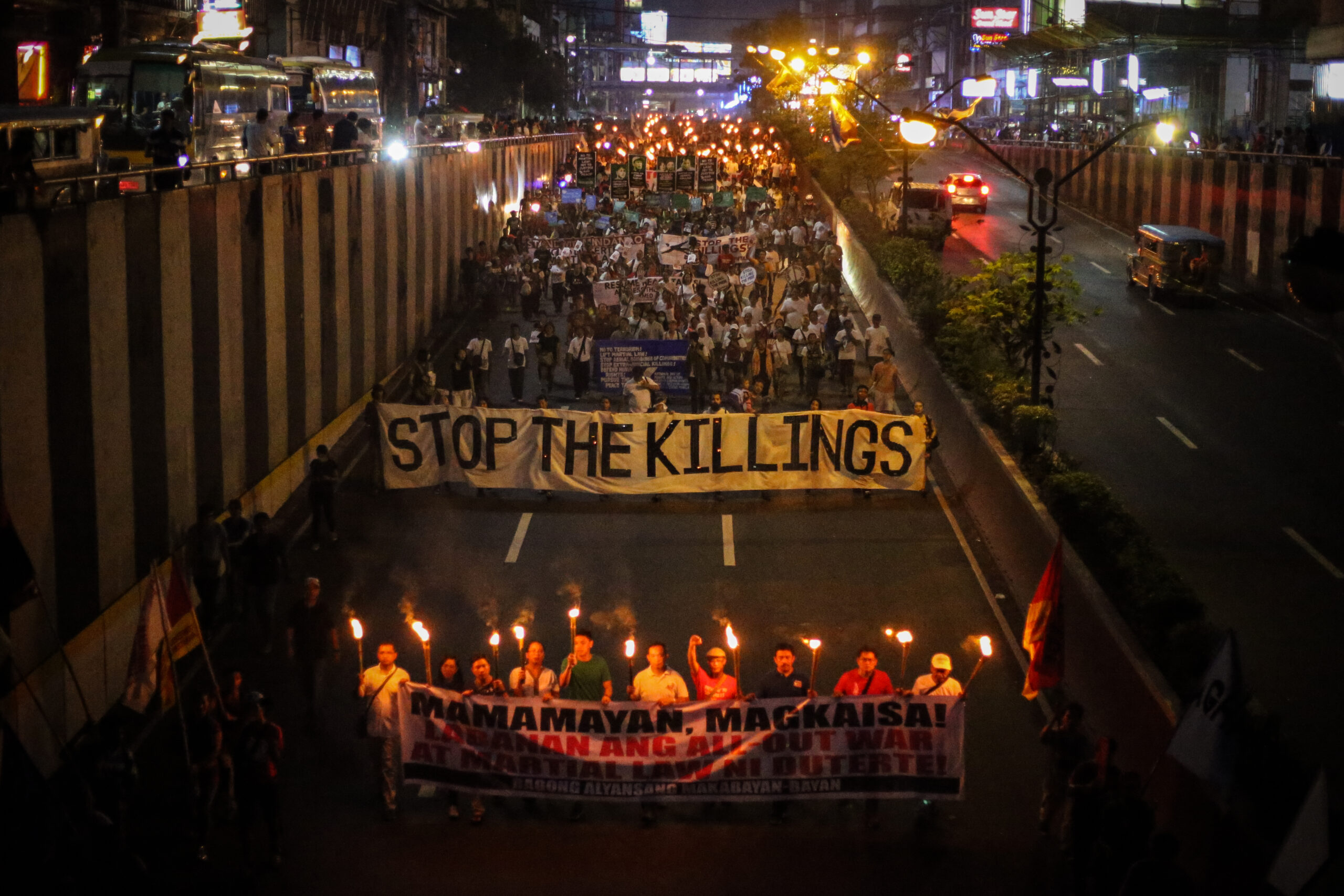In its World Report 2025, Human Rights Watch (HRW) stressed that Philippine President Marcos Jr. “initiated some human rights improvements in 2024 but failed to address past and ongoing violations.”
Drug-related and extrajudicial killings associated with the so-called “war on drugs” that former President Rodrigo Duterte started in 2016 continued under the present administration. The death toll has remained disturbingly high, with 899 drug-related killings recorded by the University of the Philippines Project Dahas as of February 7, 2025. Dahas’ 2024 report recorded a 10% rise in drug-related killings in 2024. HRW noted in its report that based on Dahas’ data in the period from January to mid-November 2024 alone, police and unidentified assailants killed 332 drug suspects across the Philippines.
Statistics also show that the police and the Philippine Drug Enforcement Agency (PDEA) have killed nearly twice as many minor suspects in the drug business as they have high-profile targets. Most of the victims of reported drug-related killings in 2024 were pushers and individuals with prior drug records.
Despite Marcos Jr.’s public commitment to investigating extrajudicial killings, there has been little accountability for the violence that continues to claim lives. Since 2016, there were only four convictions for their involvement in drug-related killings. The International Criminal Court (ICC) continues to investigate potential crimes against humanity tied to the drug war, but the Marcos Jr. administration has refused so far to fully cooperate with the ICC, complicating efforts to seek justice.
In addition to the ongoing violence from the “war on drugs,” human rights activists continue to face harassment, particularly through so-called “red-tagging” (i.e., branding individuals or organizations “terrorists”). The year 2024 saw multiple cases of harassment, fabricated charges, (especially on alleged terrorist financing), and enforced disappearances. Human rights groups have reported four new enforced disappearances in 2024, highlighting the ongoing risks faced by those challenging the government’s policies.
Despite President Marcos Jr.’s assurances that he intends to address human rights concerns, the lack of meaningful action in key areas leaves much to be desired. HRW stressed the need for significant reforms in law enforcement and for the government to uphold its promises to protect the rights of Filipinos. In many Philippine cities and provinces, however, law enforcement is in the hands of powerful political dynasties. It is widely observed that they influence the police, the public prosecutor’s office and the judicial authorities. How these families block much needed reforms is explained by a recent report of the Philippine Center for Investigative Journalism (PCIJ).
At least 113 out of the country’s 149 city mayors belong to political dynasties and most of them are seeking re-election, says the PCIJ report. “Political dynasties are not good for Philippine democracy,” said Dean Dulay, a political science professor at the Singapore Management University. “People who have a lot of resources, who have a lot of power, and are interested in dominating local politics for their own personal benefit are winning,” he observed. Other critics are concerned about the dominance of political dynasties in local governance, particularly how they hinder accountability and perpetuate impunity.
An anti-political dynasty bill that was introduced in the House of Representatives nearly 30 years ago is seen by some as a long-term solution. Political reform advocate Eirene Aguila however admits that there are problems in passing it. “Lawmakers will not do things that will hurt their personal and individual interest,” she said.
Photo © Raffy Lerma

